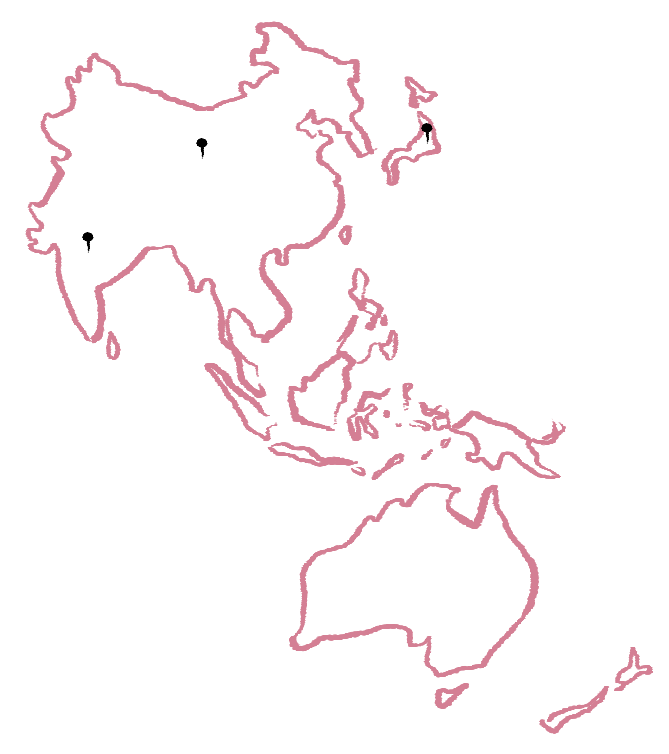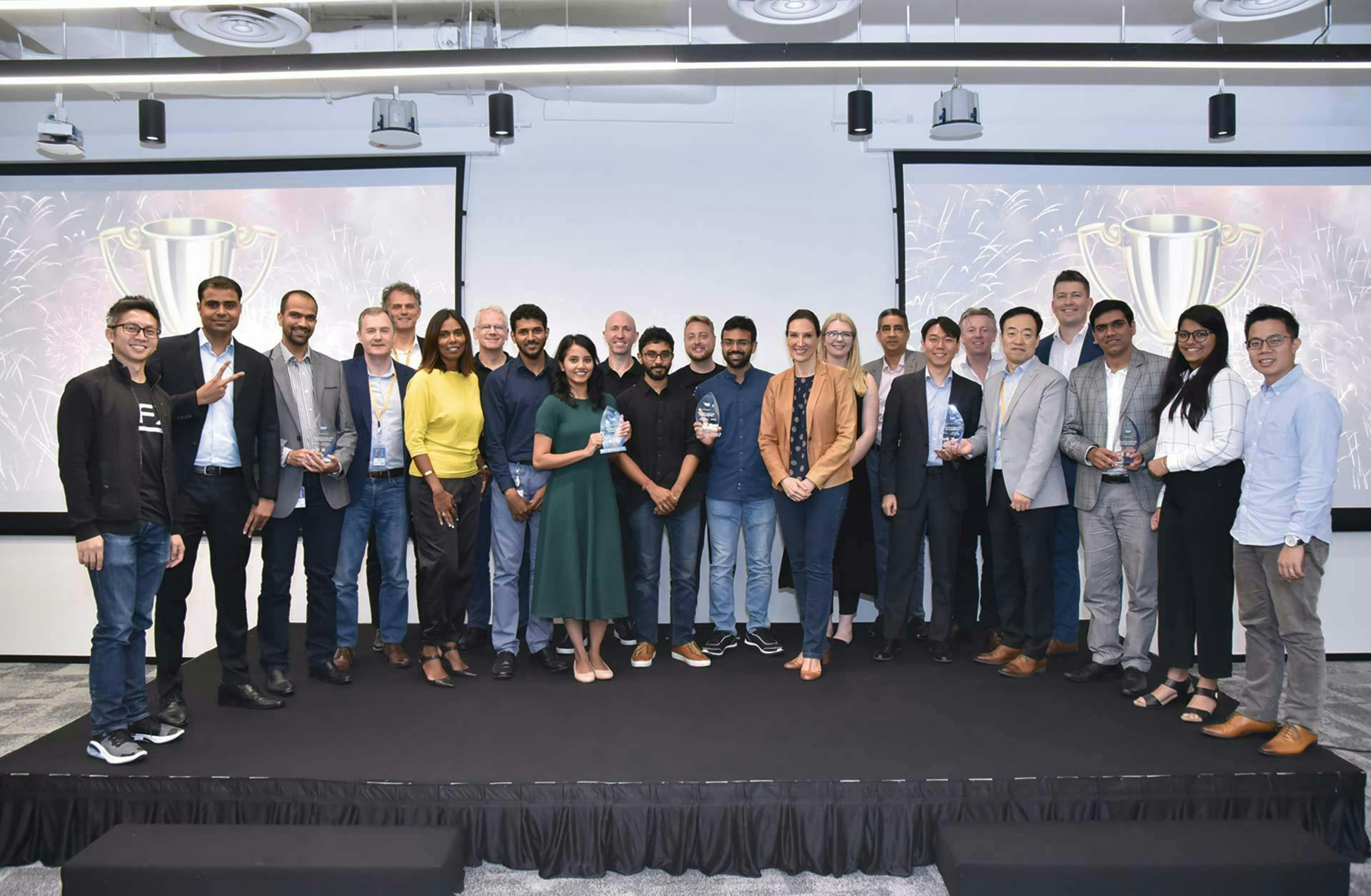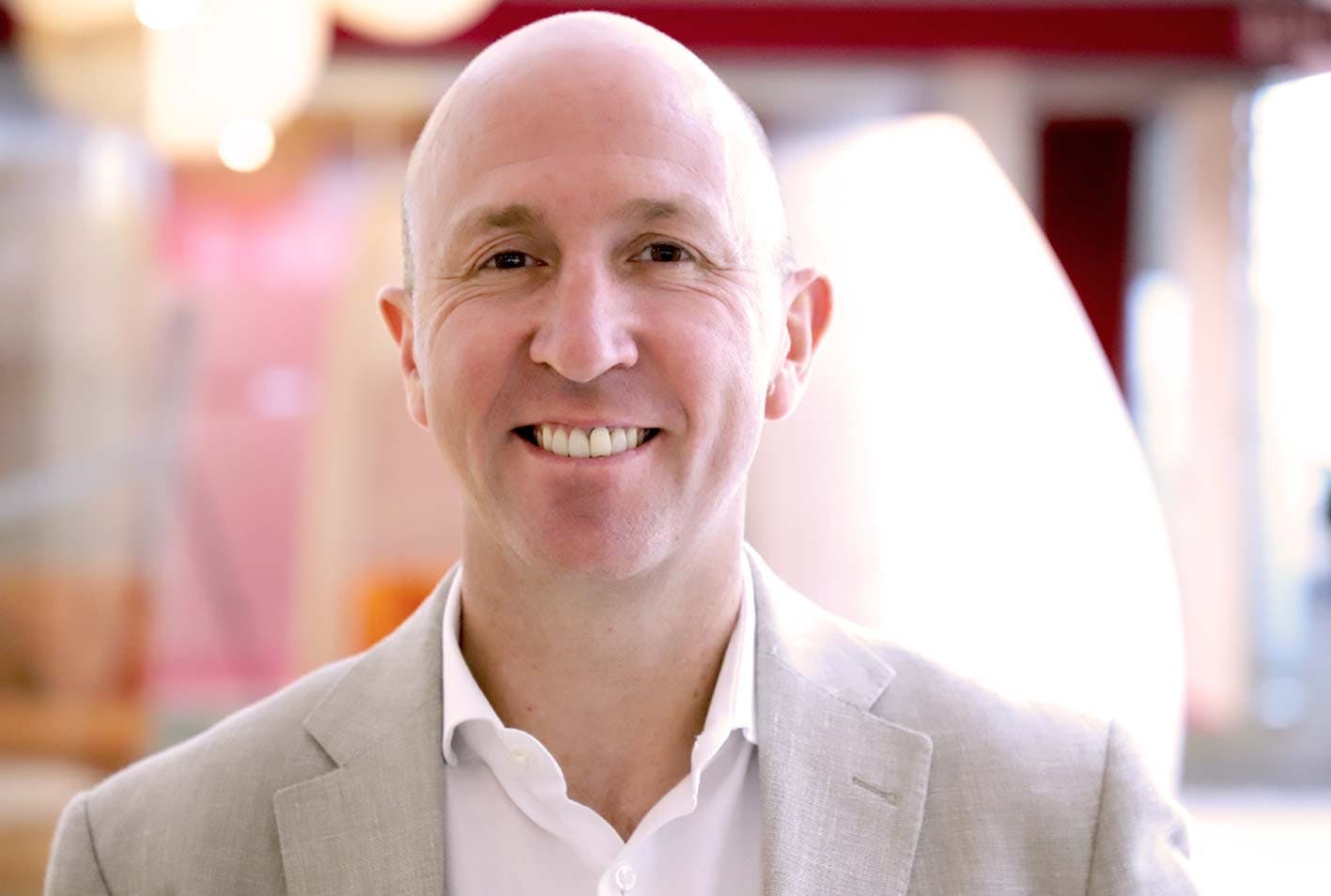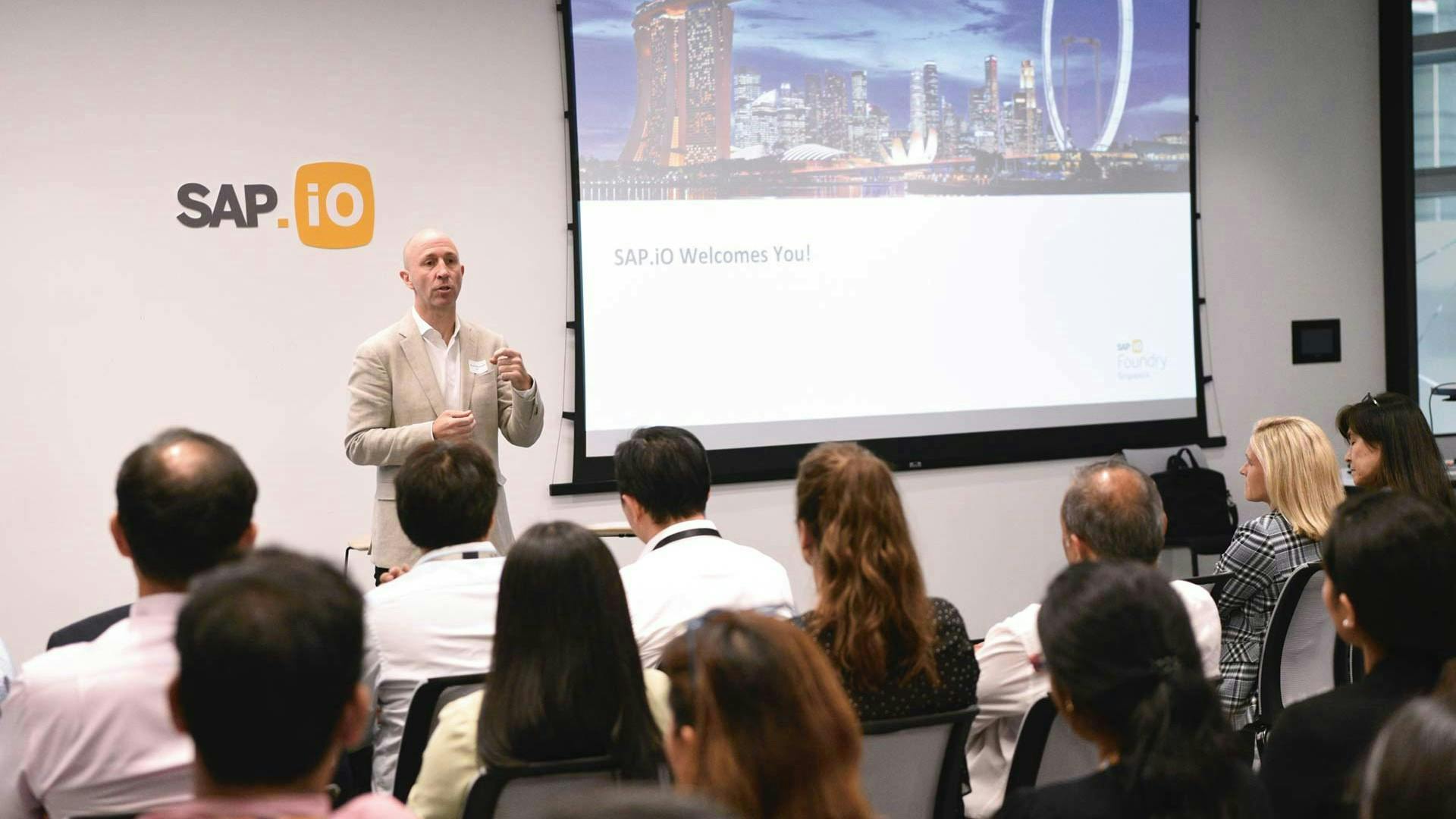How Asia Pacific and Japan (APJ) has become a beacon for socially conscious innovation
n the midst of the hottest summer on record in Europe, we hopped continents to chat with one of SAP’s prominent thought leaders, Scott Russell, the company’s president of Asia Pacific and Japan (APJ) and a strong advocate for socially conscious innovation. Given Scott’s passion for working toward positive change and SAP’s purpose-driven ethos, we wanted to take a deep dive into how SAP drives social innovation and impactful entrepreneurship within the APJ startup ecosystem.
“Asia is a beacon of growth and opportunity for startups,” says Scott. “Not only is there the talent and capability, there is also economic strength, entrepreneurial flare and the vision to succeed.”
According to Scott, a longtime leader in SAP’s corporate community as well as the broader entrepreneurial ecosystem SAP serves and supports, Asia has a wealth of impactful ideas and talented tech professionals. What’s key is a healthy mix of systemic support, from SAP and other organizations, and an influx of brave startups, to keep building an ecosystem where entrepreneurs can leverage technology to affect positive social change.
Throughout the exchange, Scott goes back to his roots to unearth for us where his passion for entrepreneurship and innovation originated, and traces his journey through SAP and the region to land on what he believes to be the best ways startups can work with SAP to innovate toward a better, more sustainable world.
Limitless potential and exciting challenges
According to Scott, the APJ region is combining the strengths of large intellectual and tech markets such as China, India and Japan, with emerging and booming middle classes and consumer appetites, to stoke startup growth. Forty percent of the world’s unicorn startups originate in Asia, including Grab and Go-Jek. Singapore, Australia and Japan lead the region in innovation, with Vietnam, India and Bangladesh quickly becoming rising stars in the ecosystem.

The benefits of entering the entrepreneurial world in this particular region are quite clear. For one thing, in Asia, there is easy access to talent. The continent has over half of the world’s young people, many of whom are digital natives disrupting status quo and triggering startup growth. “They are demanding an experience that has never been seen before,” says Scott.
The overall talent pool in Asia is immense and diverse, with more and more impact-driven leaders. Scott observes that “Asian startups are being helmed by a new breed of leaders who dare to dream and possess the drive to make a difference.”
APJ is enormous and diverse, with a huge variety of cultures and over 2,000 languages represented across a vast area. Local entrepreneurs and international founders coming to the region have numerous cultural and linguistic barriers with which to contend.
“Some of the markets within APJ are also emerging markets, with different stages of digital maturity and economic development across the region,” says Scott.
The good news is you don’t have to go it alone. Scott’s optimism toward the startup world of APJ is bolstered by the impassioned support of SAP, which manifests in the form of a staggering amount of initiatives and programs, many of which are tailored to empower purpose-driven and impact-inspired innovators.
SAP as the best supporting player
SAP, the world’s largest business application enterprise software company, established their presence in Asia Pacific and Japan in 1989. They have operations in 12 countries across the region, employing nearly 20,000 people, and they serve 44,000 customers. With a principal goal to be an influential collaborator, SAP has over 3,000 partners in APJ.
We strive to power opportunity through digital inclusion.
"We provide the best in class technology to help our customers transform their businesses and really enhance the experience they deliver to their customers,” says Scott about SAP’s activities in APJ and the rest of the world. One of their main goals is foster innovation and entrepreneurship by supporting new businesses and startups, for both their customer community and the ecosystem at large.
With Scott leading the way, SAP drives ecosystem growth and leverages their digital technologies to elevate people in their community to become more purpose-driven “We strive to power opportunity through digital inclusion,” says Scott.
SAP has a wide variety of offerings for startups seeking support. SAP.iO is SAP’s strategic business unit dedicated to driving startup innovation and new business models for SAP. Under SAP.iO you have the Foundries, which, according to Scott, “represent our global network of top-tier startup programs, including accelerators, that enable startups to build innovative software that delivers value for SAP customer.” You also have the SAP.iO Fund, which invests in early stage enterprise software startups.

Photo: SAP
There is also the SAP Startup Studio, based in SAP Labs India in Bangalore. The Studio is a dedicated mentorship program that lasts for one year and gives incubated companies support, guidance and access to SAP’s extensive customer and partner ecosystem in order to build and scale.
Linking all these programs and initiatives together is passion for impact and the will to create purpose-driven communities. For Scott, the community around SAP and the larger world of startups is what makes the work that much more fun. He urges entrepreneurs and startups to first and foremost get involved and vie for network support. “You’d be amazed at how quickly and actively people want to support you as you go through this journey,” says Scott.
Impacting One Billion Lives
One of the more prominent programs for SAP doing impact-driven and oriented work in the region is the One Billion Lives initiative. In 2015, Scott and a small group of leaders at SAP got together to identify what their purpose could be in APJ, apart from continual business development and growth.
“We felt we needed to identify a purpose beyond expanding and growing,” says Scott, who, along with his SAP colleagues, set the optimistic target of positively impacting a billion lives. The initiative took on the apt name of One Billion Lives.
In 2016, SAP APJ launched One Billion Lives as a way to effectively run social enterprises within the company. The idea was to give intrapreneurs within the opportunity to bring their passion to life and make their impact-driven ideas sustainable and scalable.

Photo: Patrick Perkins / Unsplash
Two of the most prominent cases One Billion Lives has tackled are natural disaster preparedness and cancer research.
To take on the first case, specifically the issue of buildings not being built to withstand earthquakes, SAP and One Billion Lives partnered with seismometer manufacturer Hakusan to create the myShindo app, which turns everyday smartphones into easily portable seismometers.
“With data collected from the app installed in the smartphones, we can predict actual damage faster, provide help where it’s needed the most and improve building safety in the long term,” says Scott.
The second case is all about cancer research in India. SAP found that existing cancer research is often centered on western populations, which means that resulting cancer treatments don’t always suit patients in India. In response to this, SAP partnered with Ramesh Nimmagadda Cancer Foundation to develop software to collect and analyze data from cancer patients in India. The data is used to help local patients receive more accurate treatments, lower treatment costs, and reduce side effects of medications.
In spearheading initiatives such as One Billion Lives, SAP is committed to realizing its enduring vision and purpose of helping the world run better and improving people’s lives. As Scott puts it, “some of these ideas are real business ideas in their own right that could end up being startups, that we could fund and support as SAP, and then potentially take further.”
The economic success can only ever be achieved when it's in a natural balance with helping and supporting the communities we live in and serve.
Leaving the world a better place
Living in Asia for nearly 20 years has given Scott the opportunity to get a close look at issues he and SAP wish to solve. In Japan, Scott has seen the impact that natural disasters have, and in the Philippines, he’s come face to face with the lack of access to clean water. Food waste and lack of access to medicine and education pervade India and other parts of South East Asia. To Scott, these are all barriers to creating a more equitable social environment out of which startups can flourish.

Scott Russell. Photo: SAP
On a typical day of work at SAP, Scott does nearly everything. He has multiple customer meetings to help people maximize the value added from their collaboration and investments with SAP. He runs mentoring sessions and spends time fostering early talent to advise burgeoning entrepreneurs with their careers. Put it all together, and Scott is a leader on a daily basis.
And this is not just within the walls of SAP. Scott works to bring the best out of, and give the best back to, the beautiful diversity Asia has to offer.
“I try to make sure that in my role as an influencer and a leader, as somebody who can bring the best of SAP from both our products and solutions, but also our capabilities across different paths, I bring all of this to bear from a global context, and make it available in every single geography that we have in the region,” says Scott.
Scott grew up in a rural town in Australia, where his parents were both active in passionately serving the community. His father, for instance, spent the better part of his career providing employment opportunities for people with physical or mental disabilities. For his parents, leaving the world in a better state than when you started was an absolute imperative.
This left a lasting impression on Scott as a professional and as a person. He emphasizes, “it’s not about what you can get. It’s about what you can give.”
How you can play your part
With all the many challenges in APJ, as well as the veritable macrocosm of support initiatives, it can be quite daunting to know how to get into the ecosystem. The region inspires a good deal of passion, although it’s not always clear where to direct that energy and vision.
“My advice obviously is that with anything you do, any contributions you make and ideas that you have, the fact that you even invest the time and energy, is worthwhile.” For Scott, the name of the game is “unambiguous positivity.”
Part of this journey is the redefining of success and failure. Scott asserts that for startups and ventures focusing on social causes there is no actual failure, only new and exciting learning opportunities. Each step of the journey comes with insights into the target issues and concerns that will propel you forward on your path to success.
It’s not about what you can get. It’s about what you can give.

Singapore Building. Photo: Adrien Olichon /Unsplash
To be truly successful as a founder, however, is to be open to experimentation. “I see quite a common trait with successful startups of continuing to experiment and reassess the status quo,” says Scott. Startups do have to start with one idea or business model, though that doesn’t mean it shouldn’t change.
“Through experimentation, you have the ability to find paths to success,” says Scott, “whereas if you stick to the one idea and keep trying to find ways to make it succeed you might not have the best chance at the outcome that you’re seeking.”
On top of all this is the idea that engaging with the communities and networks is most important of all. “It’s a life community and a network that you build,” says Scott. “Journeys and stories and what happens along the way, those are the best parts of life.”
Of course, the startup journey, as supported by Scott and SAP, should lead to purpose. The role of SAP and its partners, from government agencies to corporates and startups, is to tackle the vast number of challenges facing the economy, the environment and society. The more we as entrepreneurs do, alongside companies like SAP, the more opportunities arise to drive economic and societal development.
As Scott says, “I feel that we need to take that leadership responsibility heavily, and we need to make sure that as a region we contribute positively to the next generation of the world, because we’ll be a major part of it.”


